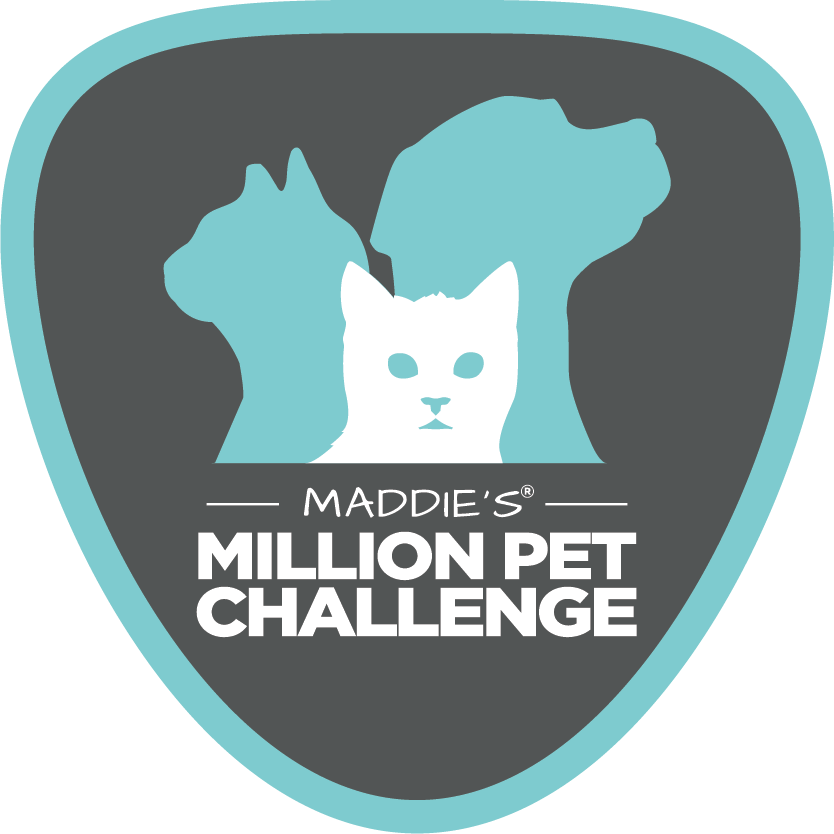
Catalog Advanced Search
-
Contains 3 Component(s), Includes Credits
How Cincinatti Animal Care (CAC) has worked to develop a strong culture to support lifesaving, even when decisions are difficult.
This course is part of Maddie's Monthly Behavior Connection, monthly webcasts about pet behavior - supporting pets in our community and animal shelters.
Learn how Cincinatti Animal Care (CAC) has worked to develop a strong culture to support lifesaving, even when decisions are difficult. You'll learn about CAC's process for behavioral euthanasia decisions.
Speaker: Meaghan Colville, Director of Shelter Operations, Cincinnati Animal CareThis webinar has been pre-approved for 1.0 Certified Animal Welfare Administrator continuing education credits by The Association for Animal Welfare Advancement and by the National Animal Care & Control Association.
Visit Maddie's Pet Forum to comment, access the resources, follow a discussion or ask questions: https://maddies.fund/BehaviorConnectionJune2025
keywords Maddie's Monthly Behavior Connection, animal euthanasia decisions, Cincinatti Animal Care, Meaghan Colville
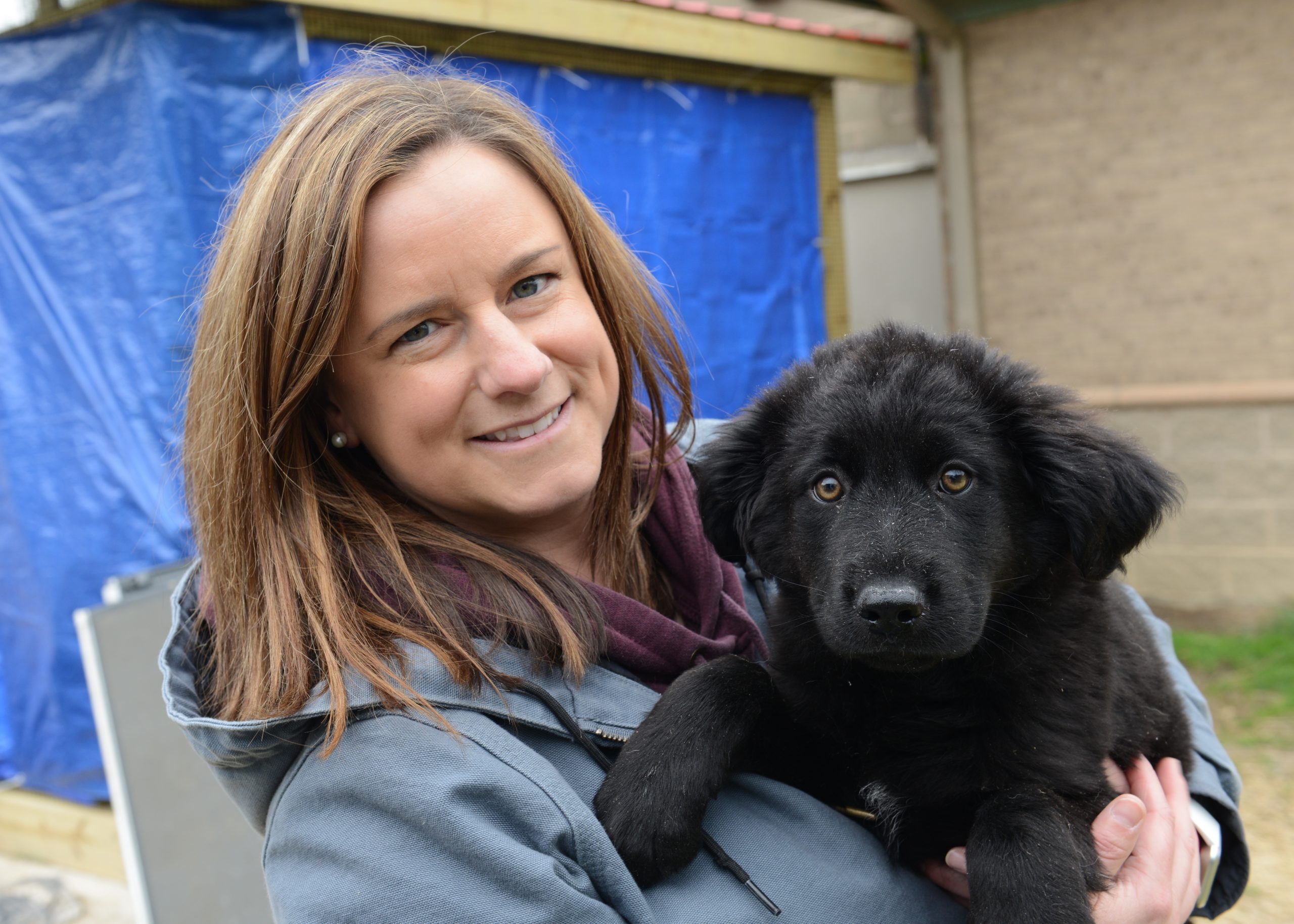
Meaghan Colville
Founder and Director of Shelter Operations
Cincinnati Animal CARE Humane Society
With 10 years experience in the animal services field, Meaghan began her career at spcaLA in Los Angeles. As a Humane Educator, she was part of a team that ran violence-prevention programs pairing youth from at-risk communities with adoptable shelter dogs in positive reinforcement dog training classes. The Humane Education department also included a court-ordered juvenile offender program, 8-week long summer camp, and a foster program for the pets of victims of domestic violence. Meaghan moved on to become Volunteer Manager at spcaLA, overseeing almost 300 volunteers and helped implement a new volunteer levels-based dog enrichment program.
-
Enroll
- All Users - Free!
- More Information
-
Enroll
-
Contains 4 Component(s), Includes Credits
Learn the basics of reading dog body language and communicating effectively with dogs to keep you and the dog safe
Reading dog body language and communicating effectively with our own behavior are practiced skills that we need to mindfully develop over time. In this course you'll analyze videos of dogs and handlers having conversations. The handler needs to understand what the dog is telling them and also communicate their intentions to the dog. The goal is always for the human and the dog to be in agreement that "I'm into you!" Through this course, you'll recognize behaviors that suggest the dog is unsure, and consider how to de-escalate the conversation to "I'm into you!"
Course author: Devan Amundsen, CPDT-KA, is a certified dog trainer with over 15 years of experience working with not just dog owners, but dogs in shelters, assistance dogs and other working dogs
This course is the first in a two-part series. The second course is in development.-
Enroll
- All Users - Free!
- More Information
-
Enroll
-
Contains 3 Component(s), Includes Credits
Delve into recommendations for socializing puppies including roles, environment, age groups and challenges.
This course is part of Maddie's Monthly Behavior Connection, monthly webcasts about pet behavior - supporting pets in our community and animal shelters.
What do we mean when we recommend that puppies are 'socialized'? Is there a role for mom in this? What about the home or environment into which the dog is born? Are the recommendations the same for puppies adopted young and older pups? When should puppies be adopted? What about pups that have some early trauma or neglect? What can we fix and what can we prevent? This webcast will review each of these issues, identify factors to which we should pay more attention, and discuss when interventions may help and what those could be.
Speaker: Dr. Karen Overall, BA, MA, VMD, PhD, DACVB, Professor of Behavioural Medicine at Atlantic Veterinary College, University of Prince Edward IslandThis webinar has been pre-approved for 1.0 Certified Animal Welfare Administrator continuing education credits by The Association for Animal Welfare Advancement and by the National Animal Care & Control Association.
Visit Maddie's Pet Forum to comment, access the resources, follow a discussion or ask questions: https://maddies.fund/BehaviorC...
keywords Maddie's Monthly Behavior Connection, socializing puppies, canine behavior, Dr. Karen Overall, socialization
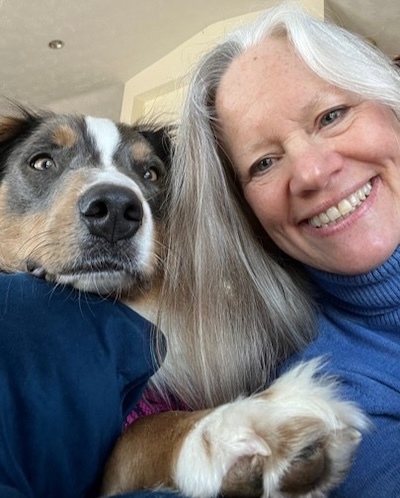
Dr. Karen Overall, BA, MA, VMD, PhD, DACVB
Professor of Behavioral Medicine
Atlantic Veterinary College, University of Prince Edward Island
Dr. Karen L. Overall received her BA, MA and VMD degrees from the University of Pennsylvania and a PhD degree from the University of Wisconsin-Madison. She did her residency training in veterinary behavioural medicine at the University of Pennsylvania and is a Diplomate of the American College of Veterinary Behaviourists (DACVB). Dr. Overall is a Professor of Behavioural Medicine at Atlantic Veterinary College, UPEI where she created the clinical, didactic and research program which trains veterinary students, residents, and graduate students.
Dr. Overall lectures at meetings and veterinary schools world-wide and consults internationally with governments, NGOs and working dog and welfare organizations. She is the author of hundreds of scholarly publications, textbook chapters, commentaries, et cetera and the texts Clinical Behavioural Medicine for Small Animals (1997; Elsevier) and Manual of Clinical Behavioural Medicine for Dogs and Cats (2013; Elsevier) and of the DVD, Humane Behavioural Care for Dogs: Problem Prevention and Treatment (2013; Elsevier). She is the editor-in-chief for Journal of Veterinary Behaviour: Clinical Applications and Research (Elsevier).
Dr. Overall has been named the North American Veterinary Conference (NAVC) Small Animal Speaker of the Year and was named one of the The Bark’s 100 Best and Brightest - Bark Magazine’s list of the 100 most influential people in the dog world over the past 25 years.
Her research interests include psychopharmacological treatments of anxiety and new drug development, behavioural genetics of anxiety disorders, and effects of early trauma on the behavioural development and later behavioural pathology of kittens and puppies.
-
Enroll
- All Users - Free!
- More Information
-
Enroll
-
Contains 3 Component(s), Includes Credits
Start an adult dog foster program or expand the capacity of your existing program
Having a robust foster program is essential to finding live outcomes for adult dogs. In this course, you will learn how to start an adult dog foster program or increase the capacity of your existing program through effective communications and marketing, improved logistics including automated processes, and use of volunteers. This course replaces the former Growing Your Adult Dog Foster Program course and covers similar material, but with new videos and resources. The course should give new programs everything they need to implement adult dog foster and give existing programs essential tips for expanding capacity.
-
Enroll
- All Users - Free!
- More Information
-
Enroll
-
Contains 7 Component(s), Includes Credits
At best, one-size-fits-all thinking in veterinary care limits our ability to help—and feels disempowering on both sides of the exam table. At worst, care without context results in barriers that prevent us from even meeting the pets who need us most.
Webinar Overview
What if the “gold standard” wasn’t the only standard? This recorded webinar challenges the idea that there’s just one right way to deliver veterinary care. Building on concepts like spectrum of care and incremental care, it introduces contextualized care—a practical, values-driven framework that helps meet the needs of animals, people, and communities, even when resources are limited.
Watch to explore:
- What contextualized care really means in shelters, community medicine, and private practice
- How to identify and address common barriers to veterinary care
- Strategies for aligning care decisions with available resources, legal/ethical responsibilities, and community priorities
Whether you’re in a shelter, clinic, or outreach setting, this session will help you expand access without compromising compassion.
Continuing Education Credits
This webinar has been approved for 1 Certified Animal Welfare Administrator (CAWA) continuing education credit by The Association for Animal Welfare Advancement (AAWA) and by National Animal Care and Control Association (NACA).
This course has been approved for 1.5 hours of RACE continuing education credit until 6/9/2025 in jurisdictions that recognize RACE approval. Upon completing the course and passing the quiz, upload your certificate to https://CEBroker.com. This is the broker used by the AAVSB to track your continuing education credits.
Keywords
MMPC, Learniverse, accessible care, veterinary care, spectrum of care, community needs
Contact
Email us at help@shelterlearniverse.com if you have any questions or concerns about this webinar.
Maddie’s®️ Pet Forum Discussion Thread
You can also join the discussion about these concepts over on Maddie's Pet Forum in the discussion thread.

Click to visit the Discussion Group (will open in a new window/tab).
Maddie’s® Million Pet Challenge
With the Maddie’s® Million Pet Challenge, the Five Key Initiatives of the Million Cat Challenge have expanded to include other species at risk in shelters and evolved into the Four Rights.
Within the Four Rights, every element works in concert to support one another: animals and people are treated as individuals, empowering shelter staff to make the best decisions for everyone; community safety net services are in place and flourishing; and humane care within the shelter is provided, with appropriate outcomes for the animals that do come in, allowing shelters to deliver the Right Care, in the Right Place, at the Right Time, and to the Right Outcome
Learn more about Maddie's® Million Pet Challenge Learniverse. #ThankstoMaddie

Dr. Jennifer Bennett
Director of Shelter Medicine and Access to Care
UC Davis Koret Shelter Medicine Program
Jennifer Bennett joined the Koret Shelter Medicine Program as the new Director of Shelter Medicine Access to Care in late 2024. She is a 2008 graduate of the University of Wisconsin-Madison School of Veterinary Medicine and soon after she began practicing in her hometown regions of rural Northern California. She spent 5 years in small animal, emergency and farm animal medicine before joining Lake County Animal Care & Control as its first Medical Director in 2013. After realizing the life-saving impact that a shelter veterinarian can have on a community, she has remained dedicated to the field of shelter medicine. She has worked with a wide variety of municipal and private organizations, developing shelter medicine and surgery programs, consulting with humane organizations, participating in community outreach clinics, and working with large-scale humane law enforcement seizures and legal cases. Dr. Bennett most recently served as the Medical Director for the City of Seattle from 2017-2022 and the Chief Veterinary Officer for the Humane Society of Tacoma & Pierce County from 2022-2024. She served on the California HOD, the Washington State VMA, and was WSVMA President from 2021-2022, and has been serving on the AVMA Animal Welfare Committee since 2023. Dr. Bennett is passionate about supporting and mentoring shelter veterinarians and students, creating low barrier access to care programs, and identifying and removing bottlenecks in shelter programs to improve capacity for care.
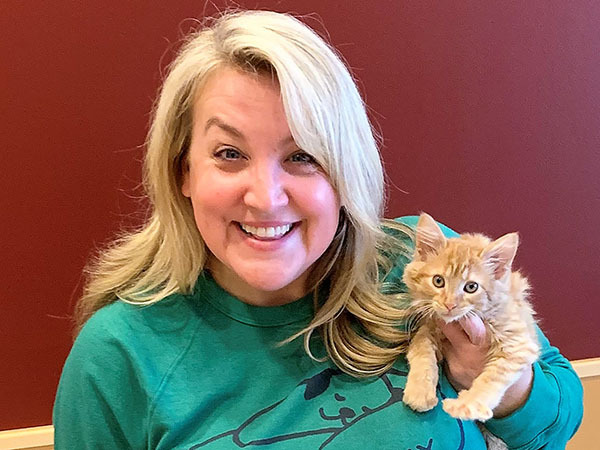
Kelly Bremken
Veterinary Social Worker Oregon Humane Society
Oregon Humane Society
Kelly Bremken is the Veterinary Social Worker with Oregon Humane Society. Originally a Midwest native, with a BA in Organizational Communication, Kelly’s experiences have crisscrossed the entire country. She has worked in animal welfare for more than 20 years at Arizona Humane Society, Humane Society of the Treasure Coast, Seattle Animal Shelter, and Oregon Humane Society. Kelly graduated in Spring 2021 with a Master of Science in Social Work (MSSW) from the University of Tennessee, Knoxville, with a certification in Veterinary Social Work (VSW). The University of Tennessee Veterinary Social Work Certificate Program trains MSSW students in the four areas of Veterinary Social Work. Those areas are Compassion Fatigue & Conflict Management, the Link Between Human & Animal Violence, Animal Assisted Interventions, and Animal-Related Grief & Bereavement. At Oregon Humane Society and in the Community Veterinary Hospital, Kelly is on the forefront of utilizing social work practice to attend to the human needs that arise at the intersection of veterinary medicine & animal welfare, and social work practice. She serves as Oregon Humane Society’s first veterinary social worker and is paving the way in the field for greater workplace wellbeing and community
partnership.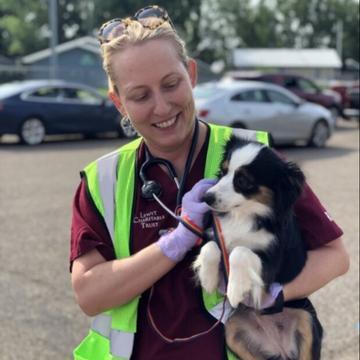
Dr. Sarah Mantovani
Veterinarian, RAVS
Humane World for Animals
Dr. Mantovani completed her DVM degree at UC Davis and her Master's in Shelter Medicine through the University of Florida. She is currently a Field Veterinarian with the RAVS team, part of the HSUS. In this role, she works with underserved communities expanding access to veterinary care and mentoring students who are interested in this type of work. Previously she was a Medical Supervisor at the ASPCA in NYC and a shelter veterinarian at the Seattle Animal Shelter where she helped to develop their novel shelter medicine program supporting their vision, “To bring exceptional in-house care to shelter animals and animals from the public through low-cost Spay and Neuter services for community members in need.” Dr. Mantovani lives in Arkansas, a recent move, with her husband, 2 German Shepherds, named Leonidas and Valentina, and a cat, named “It”.
-
Enroll
- All Users - Free!
- More Information
-
Contains 3 Component(s), Includes Credits
Learn how Neighborhood Pets offers adaptable strategies for innovative community building in support of human and pet well-being.
Doors Wide Open is a series of short discussions about practical solutions that organizations are using to address barriers to accessing pet care and resources in their communities.
In this session we exploare the community-centered approach of Neighborhood Pets Outreach & Resource Center, a membership-based, Cleveland nonprofit created by proximate leaders—those deeply connected to the communities they serve. They have built strong human service and community development partnerships to help families also access vital healthcare, legal and emergency resources.
This webcast highlights how Neighborhood Pets offers adaptable strategies for innovative community building in support of human and pet well-being!Guest Speakers:
Geraldine D’Silva, National Director of Programs & Partnerships at Open Door Veterinary Collective
Janet Hoy-Gerlach, PhD, LCSW, LISW-S, Director of Veterinary Social Work at Open Door Veterinary Collective
Becca Britton, Executive Director at Neighborhood PetsEarn continuing education credit from The Association for Animal Welfare Advancement towards 1.0 CAWA CEs. This webinar has also been pre-approved for 1.0 continuing education credits by the National Animal Care & Control Association (NACA).
Visit Maddie's Pet Forum to comment, follow a discussion or ask questions:
keywords Doors Wide Open, Open Door Veterinary Collective, access to veterinary care, Aimee St.Arnaud, Geraldine D'Silva, Janet Hoy-Gerlach, Becca Britton

Aimee St.Arnaud
Owner, Open Door One Health Partnerships
Aimee St.Arnaud's focus is on increasing access to spay/neuter and veterinary care across the nation. Previously she was the Director of National Veterinary Outreach Programs for Best Friends Animal Society and Director of Programs at ASPCA Spay/Neuter Alliance where she oversaw spay/neuter training programs of 1,000 professionals a year. She is the founder of Humane Ohio, a spay/neuter clinic performing roughly 18,000 spay/neuters a year and Partner in two full-service access to care veterinary clinics in OH and NC.

Janet Hoy-Gerlach, PhD, LISW-S
Associate Professor, University of Toledo School of Social Justice
Dr. Janet Hoy-Gerlach has extensive experience as a social work practitioner in the public mental health service system and is an avid advocate for the inclusion of human-animal interaction considerations within social work practice. Her current research is focused on: benefits of the human-animal bond; facilitators of mental health recovery among individuals living with mental illness; and the use of qualitative research to inform intervention research. She is on the board of the Toledo Area Humane Society (TAHS), where she developed and supervises MSW internship placements that facilitate benefits of human-animal interaction. She helped develop the TAHS Hope and Recovery Pet Program (HARP), which places shelter animals as Emotional Support Animals (ESAs); this is one of the only such programs in the United States. Dr. Hoy provides expert witness testimony for the U.S. Department of Justice Civil Rights Department on benefits of human-animal interaction.

Geraldine D'Silva
National Director of Programs & Partnerships
Open Door Veterinary Collective
With work experience in three continents and over 10 years of operational leadership, Geraldine has a passion for building innovative community programs and strategic partnerships to bridge the gap between human and animal well-being, to increase access to care. She led a small non-profit through a merger & acquisition with one of the largest animal welfare organizations in the US, and over 8 years strategically helped integrate the services throughout the 140-year-old animal shelter, enabling it to pivot to the new community-centered model that is now unfolding. Brought up in India, she did her B.A. in Sociology which took her to remote villages to study the caste system and women’s empowerment. She has an M.B.A. from the Edinburgh Business School in Scotland and a background in research consultancy, advertising and branding.
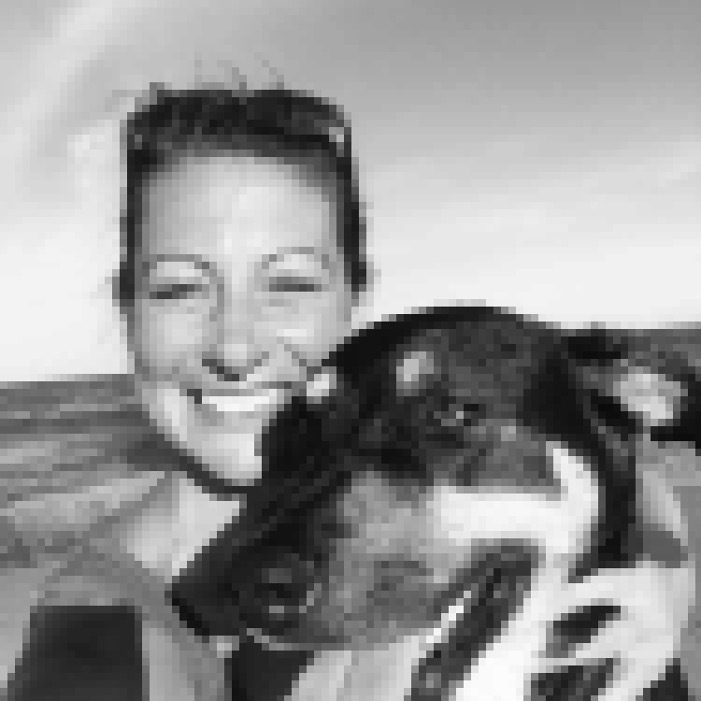
Becca Britton
Executive Director
Neighborhood Pets
Becca Britton, native to Cleveland Ohio, has been working in animal welfare since 2003. Outside of animal welfare, her work experience includes over ten years in the non-profit sector with a focus on community development, art-culture community programming, public art & program management. In 2003 Britton founded (2003) and ran Friends of the Cleveland Kennel, a non-profit organization that served as a support agency for Cleveland Animal Control. Through her non-profit, she funded supportive care and programming for animals in need. She also led the efforts to host large scale pet vaccine clinic events throughout the city of Cleveland.
In 2016, Becca founded Neighborhood Pets Outreach and Resource Center, a community based non-profit focused on supporting low income pet owners. Britton used her community outreach experience & training, certification from HSUS Pets for Life program, and experience in nonprofit management to create a dynamic & intuitive model based on relationship & trust building within the community, while providing accessible and affordable resources to low income pet owners. Ms. Britton is a graduate of the Leadership Development Program Initiative and has attended Case Western Reserve University’s Weatherhead School of Management. She was recently awarded HSUS Humane Leader of the Year award and has been highlighted in various Northeast Ohio media outlets showcasing her work in the community. Becca’s focus as a “big picture thinker” is to create sustainable change in the animal welfare sector by being an advocate for animals and the people who love them.-
Enroll
- All Users - Free!
- More Information
-
Enroll
-
Contains 5 Component(s), Includes Credits
This webcast presents a study on how specific social media content features influence engagement with posts about adoptable animals, highlighting differences before and after the pandemic.
Maddie's® Insights is our ongoing webcast series with practical tips based on current research to help pets and people.
Presenter:
Rachel Morrison, PhD, Associate Professor in the Psychology Department at the University of North Carolina at PembrokeProgram Description:
This webcast explores how social media content influences engagement with posts about adoptable animals. It highlights findings from a study analyzing Facebook posts from rural shelters, examining how features like photo style, video content, text tone, and animal type impact likes and shares. The study also compares pre-pandemic (2019) and post-pandemic (2020) data, revealing that 2019 posts received more likes, while 2020 posts were shared more. Results suggest that both the type of animal and its depicted environment affect engagement, although further research is needed to link post content directly to adoption rates.Attendees will learn about:
1. the online promotion of adoptable animals and the features that have previously been linked to increased adoptions
2. using social media platforms to increase public engagement of adoptable animals. Specifically, what features of post content may have an influence
3. questions that have yet to be answered. Topics of future exploration will be suggested.
Earn continuing education credit from The Association for Animal Welfare Advancement towards 1.0 CAWA CEs. This webinar has also been pre-approved for 1.0 continuing education credits by the National Animal Care & Control Association (NACA). It has also been approved for 1 hour of continuing education credit until 3/10/2027 in jurisdictions which recognize RACE approval. Complete the quiz to earn continuing education credit.
Visit Maddie's Pet Forum to comment, follow a discussion or ask questions: https://maddies.fund/MIwebcast...
keywords Maddie's Insights, Rachel Morrison, PhD, social media impact on pet adoption
Rachel Morrison, PhD
Associate Professor in the Psychology Department
University of North Carolina at Pembroke
Dr. Rachel Morrison received her B.S. in Biology with a concentration in animal biology and a minor in Psychology from Grand Valley State University (Allendale, MI). She received her M.A. in Psychology with a certification in Animal Behavior and Conservation from Hunter College of CUNY and her Ph.D. in Psychology with a concentration in Biopsychology from The Graduate Center of CUNY (New York, NY). Dr. Morrison is currently an Associate Professor in the Psychology Department at the University of North Carolina at Pembroke where she teaches Introductory Psychology, Research Methodology, Animal Cognition and Behavior, and Biopsychology.
Dr. Morrison’s research interests include animal behavior, animal cognition, animal welfare, and human-animal relationships. She has conducted research with diverse species in multiple locations and contexts including field research, lab studies, and studies of animals housed in zoological (e.g., whispering in cotton-top tamarin monkeys) and aquarium (e.g., the development of mirror self-recognition in bottlenose dolphins) settings. In addition, Dr. Morrison has investigated factors that influence college students’ attitudes towards animal use and the relationship between pro-welfare attitudes and perceptions of animal thinking, as well as links between college student pet attachment and the quality of care given to pets. More recently she has explored the use of social media (i.e., Facebook) by local animal shelters to promote adoptable animals and the impact of a miniature horse-assisted intervention on college student mood and optimism her PhD and MA degrees in the behavioral neuroscience and comparative psychology program at Arizona State University in the Canine Science Collaboratory.
-
Enroll
- All Users - Free!
- More Information
-
Enroll
-
Contains 3 Component(s), Includes Credits
Explore practical, safe, and effective sanitation tips tailored to foster homes so you’ll know even more than you already do about creating and maintaining clean, nurturing spaces that support your foster animals’ recovery and wellbeing.
This course is part of Maddie's Monthly Foster Connection, monthly webcasts about foster care - supporting pets in our community and animal shelters.
Sanitation is one of the most underrated but important factors in maintaining animal wellbeing. We all know how important it is to keep infectious diseases at bay in shelters, but what about foster homes? These temporary havens are a lifeline for our most vulnerable animal populations, giving them a break from shelter stress and infectious disease risk while offering personalized care and attention. But let’s face it, foster homes are busy places! From kids to grandparents, and even resident pets, there can be a lot of interaction going on in foster homes. So, how do we keep these environments safe and healthy for our foster animals? In this webinar, we’ll explore practical, safe, and effective sanitation tips tailored to foster homes. By the end, you’ll know even more than you already do about creating and maintaining clean, nurturing spaces that support your foster animals’ recovery and wellbeing.
Presenter: Mehnaz (Chumkee) Aziz, DVM, DABVP (Shelter Medicine Practice), Outreach Veterinarian, UC Davis Koret Shelter Medicine Program
This webinar has been pre-approved for 1.0 Certified Animal Welfare Administrator continuing education credits by The Association for Animal Welfare Advancement and by the National Animal Care & Control Association.
Visit Maddie's Pet Forum to comment, follow a discussion or ask questions: https://maddies.fund/FosterCon...
Keywords Maddie's Monthly Foster Connection, Dr. Mehnaz Aziz, pet foster care, sanitation for pet foster caregivers
Mehnaz (Chumkee) Aziz, DVM
Outreach Veterinarian
Koret Shelter Medicine Program, UC Davis
Chumkee obtained her DVM degree at Tufts Cummings School of Veterinary Medicine in 2012. She then completed an internship at the ASPCA’s Bergh Memorial Animal Hospital in NYC in 2013, which included experience in anti-cruelty work and shelter medicine. Chumkee was a resident at the KSMP from 2013-2016. She headed the Northern Tier Shelter Initiative and served as Senior Director of Shelter Medicine Services at the ASPCA before returning to the KSMP in January, 2022 as an outreach veterinarian.Her current interests include the role of community collaboration in mitigating pet homelessness, proactive shelter population management, and infectious disease prevention in shelters.
-
Enroll
- All Users - Free!
- More Information
-
Enroll
-
Contains 3 Component(s), Includes Credits
Learn practical tools to assess and respond to feline communication using Fear Free's Fear, Anxiety, and Stress scale.
This course is part of Maddie's Monthly Behavior Connection, monthly webcasts about pet behavior - supporting pets in our community and animal shelters.
This session provides practical tools to assess and respond to feline communication using Fear Free's Fear, Anxiety, and Stress scale. Through interactive exercises and video demonstrations, attendees will gain the confidence to advocate for the cats in their care, promoting better welfare and adoption outcomes.
Presenter: Tabitha Kucera, Elite Fear Free and Low-Stress Handling Certified Registered Veterinary Technician, Veterinary Technician Specialist (Behavior), Certified Cat Behavior Consultant, and Karen Pryor Academy Certified Training Partner. She is also the creator of Chirrups and Chatter Cat and Dog Behavior Consulting and Training.
This webinar has been pre-approved for 1.0 Certified Animal Welfare Administrator continuing education credits by The Association for Animal Welfare Advancement and by the National Animal Care & Control Association.
Visit Maddie's Pet Forum to comment, access the resources, follow a discussion or ask questions: https://maddies.fund/BehaviorC...
kewords Maddie's Monthly Behavior Connection, Tabitha Kucera, feline communication, feline behavior
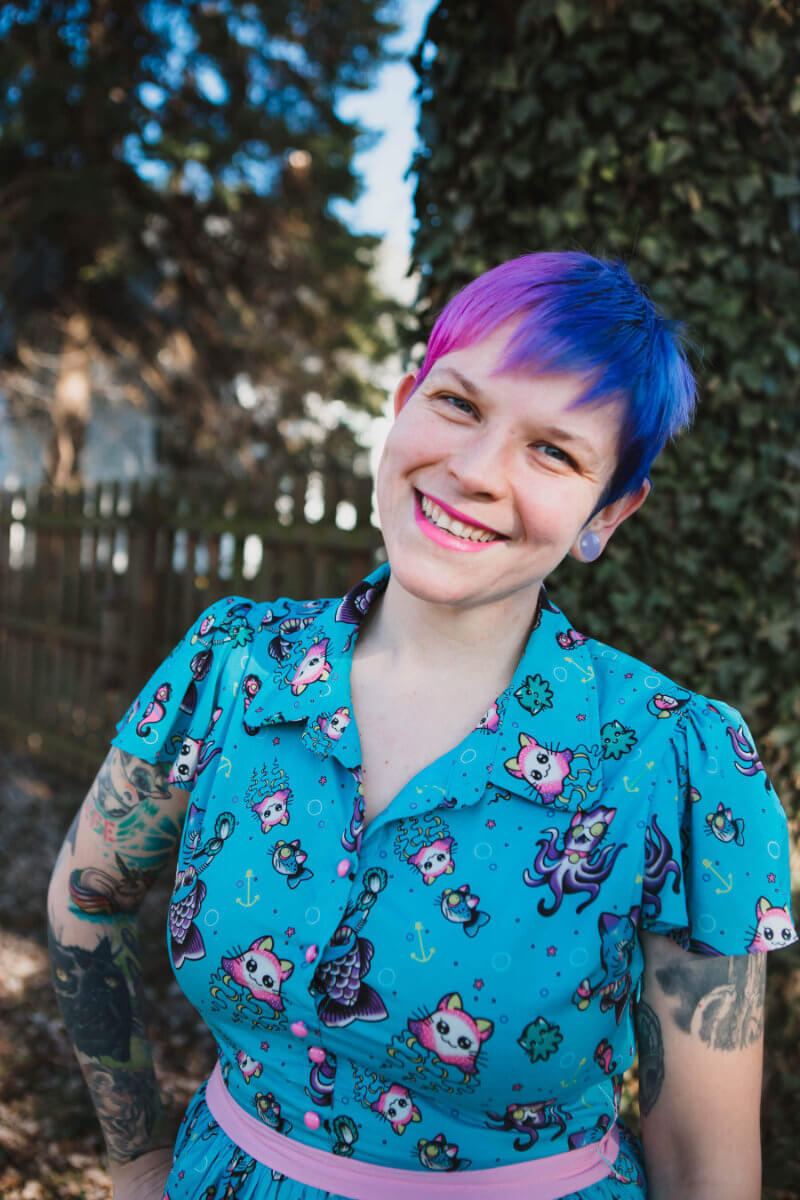
Tabitha Kucera
VT, CCBC, KPA-CTP, Owner, Chirrups and Chatter
Chirrups and Chatter
Tabitha Kucera is an Elite Fear Free and Low-Stress Handling Certified Registered Veterinary Technician, Veterinary Technician Specialist (Behavior), Certified Cat Behavior Consultant, and Karen Pryor Academy Certified Training Partner.
She is the owner of Chirrups and Chatter Cat and Dog Behavior Consulting and Training and serves as the animal behavior technician at The Gentle Vet in Ohio. Tabitha lectures nationally and internationally, helping audiences build stronger connections with animals through a deeper understanding of behavior.
Tabitha has held leadership roles with the Society of Veterinary Behavior Technicians, the International Association of Animal Behavior Consultants, and the Pet Professional Guild's Cat Committee. She also served as a behavior consultant and mentor for the Cat Pawsitive Pro program for six years.
In addition, Tabitha works closely with animal welfare and veterinary organizations, including veterinary hospitals and animal shelters, to develop and implement training and behavior programs. She is a Fear Free certified speaker and coach, a Fear Free Practice Certification Consultant, and the host of the podcast Tails from a Vet Tech.-
Enroll
- All Users - Free!
- More Information
-
Enroll
-
Contains 17 Product(s)
Check out this collection to learn about cat behavior!
Let’s talk cats! While unwanted cat behavior is less common than in dogs, you wouldn’t know that by the number of requests for cat behavior content. There are a lot of cat people here on Maddie’s® University.
This collection includes our favorite feline content about body language, stress, enrichment, behavior modification, behavior concerns and adoption counseling.
-
Enroll
- All Users - Free!
- More Information
-
Enroll




